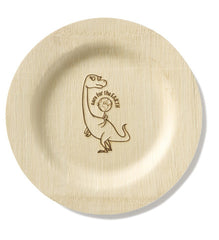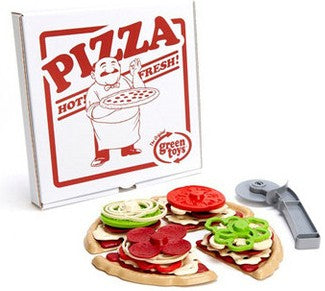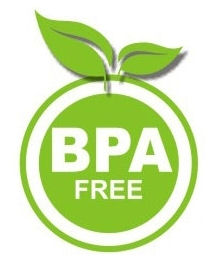- Continue Shopping
- Your Cart is Empty
Shocking Review About Toxins and Our Children
A new review of previous studies into the effects of toxins was published this month in The Lancet***. The review examined evidence supporting the facts that six materials are likely toxic for young children, including:
- Fluoride
- Tetetrachloroethylene, a chemical solvent
- Polybrominated diphenyl ethers, which are flame retardants
- Chlorpyrifos, a pesticide
- Dichlorodiphenyltrichloroethane, the pesticide commonly known as DDT
In addition, the review points to an additional 1,000 chemicals that children are exposed to on a regular basis both directly and indirectly that are potentially toxic. The scientists who wrote the review state that exposure to all of the chemicals discussed could lead to serious problems like low IQs, ADHD, autism and other neurological disorders.
The authors of the review are calling for a worldwide review on regulations regarding the use of chemicals. Let's hope someone listens. The idea that all of us are being exposed to so many toxins is downright terrifying.
***The Lancet is a weekly peer-reviewed general medical journal. The Lancet website is experiencing technical difficulties; therefore, you can read about article here at CNN.
The Worst Toxins in Kids' Products
This week, the Washington Toxics Coalition released a report that summarizes the findings of an examination of over 4,605 children's products sold in the state of Washington. The coalition's job is to monitor these products in accordance with the Children's Safe Products Act, which requires manufacturers of products for kids to report the use of potentially harmful materials in their products.
The report from the WTC shows six different types of products where there are particularly dangerous levels of chemicals: children's tops, which contain phthalate toxins; dolls and stuffed animals that contain BPA; plastic vehicles that contain a carcinogenic flame retardant; baby car seats, which are made with carcinogenic flame retardants; children's tableware, which was found to contain formaldehyde and kids' personal care products, which were laden with toxic parabens.
The report shows how choosing green products for kids can greatly reduce their exposure to toxic materials. Paperless Kitchen can help you avoid carcinogens and reproductive and endocrine toxins in kids' products with many different products, including:
- Tableware from GREEN TOYS made from certified nontoxic recycled plastic

Green Toys Green Eats Tabletop Set - 3 Pieces
- Tableware from BAMBU made from organic bamboo

Bambu Bamdino Veneerware Bamboo Plate

Bambu Bamboo Bamdino Utensil Set
- Toys from GREEN TOYS made from recycled milk jugs

- Tableware from GREEN SPROUTS made from nontoxic plastics and corn-based plastics

Green Sprouts Eco-Friendly Cornstarch Divided Plate
- Tableware from THINKBABY fabricated out of nontoxic polypropylene plastic and stainless steel

thinkbaby BPA Free Teal Feeding Set

Toxins Can Impede Weight Loss
Got a New Year's Resolution to lose weight? Better expand your resolution to go BPA-free as well. The latest research indicates that toxins like BPA can make it more difficult to shed pounds.
Here's why:
- BPA (as well as many other toxins like pesticides and chemical food additives) is stored inside of your fat cells.
- Because the toxins are found inside of fat, they cannot be easily removed by the body. They tend to accumulate inside of stored fat slowly over the years.
- Research shows that accumulations of BPA and other toxins can interfere with leptin, an important hormone that triggers the feeling of being full. This can lead to overeating.
- BPA and other toxins can also cause the thyroid to function improperly, which slows down the metabolism.
Fortunately, your liver can filter out stored toxins, but the trick is to reduce your exposure to them, so that what is stored can be processed, according to the Victoria Advocate. This means eating more organic foods and eliminating plastic food containers, plastic dinnerware and other items that contain BPA from your household. Paperless Kitchen has an array of nontoxic BPA free dinnerware and food prep and storage items to help you go BPA-free and possibly increase your chances of weight loss.
Dinnerware Food Prep Food Storage



Bambu Veneerware Plates Bamboo Studio Colander Wean Green Lunch Cube

BPA Linked to Miscarriages
In a previous blog post, we have discussed governmental pushes to reduce or eliminate BPA in consumer products. Now, a new study conducted by the Stanford University Medical Center indicates that BPA can be harmful not only to developing babies but also to fetuses.
The study examined two sets of blood samples from 114 pregnant women, comparing the levels of BPA from the first set to a set taken either after a woman miscarried or gave birth. The women who had the highest levels of BPA in their samples were at 80 percent increased risk for having a miscarriage when compared to those who had the lowest levels.
While this is a relatively small study and more research is needed to know for sure if BPA contributes to miscarriages, the study does suggest that pregnant women may be wise to limit their exposure to BPA by avoiding plastics made with the additive and metal products that are lined with it.

Healthy Child Healthy World's New e-Book Can Help Make Schools and Daycares Greener
Throughout the country, schools are back in session, and in honor of back to school, I wanted to share a great e-book that I stumbled upon from Healthy Child Healthy World. If you're not familiar with the organization, they are a nonprofit based in Los Angeles, California. Their mission is to spread the word about the dangers of toxic chemicals and how they impact children. The organization is involved in a lot of activities from lobbying Congress to petitioning companies that use dangerous chemicals in children's products to educating parents through various outreach programs.
The e-book, "Easy Steps to a Healthy School," focuses on eliminating chemicals from daycares and schools. The book is free and available to browse in full color online. The guide is divided into sections, the first eight of which focus on greening a particular aspect of the school with chapters devoted to cleaning supplies, art supplies, food, pesticides, air quality, the playground and daycare and preschools. The final chapter discusses challenges that could stand in the way of schools' efforts.
Completing the e-book are sections about being an advocate and taking action and a list of resources. The entire guide is very well written, insightful and easy to read. It's an eye-opening e-book for parents as well as for teachers and administrators. I encourage anyone with children to check out the free e-book. Let us know what you think once you've read it by posting a message in the "Comments" section.
Choosing Safer Toys for Your Kids
Recently, the Huffington Post featured an article describing how fossil fuels are found in many everyday products, particularly those made out of plastics. After reading the article, I got to thinking about the various additives in children's toys. To me, this is one of the scariest places that toxins can lurk as we all know many kids' toys end up in their little mouths, no matter how closely you watch your children.
I did some research to compile a list of some of the most dangerous materials still used in toys. These include:
- Bisphenol-A or BPA
- Phthalates
- Lead and lead-based paints
- Nonylphenol ethoxylate
- Heavy metals like cadmium and mercury
- Arsenic
So how can you tell if a toy is safe? Unfortunately, it's not always simple.
One thing you can look for is organic certification or certification from a well-known organization like Cradle to Cradle. You can also look at the recycling symbols on the bottoms of plastic toys. Those marked #7 are made out of polycarbonate and likely tainted with BPA. #3 plastic is often phthalate-laced PVC. Here at Paperless Kitchen, we have some nontoxic kitchen toys that are a good starting point for choosing safer toys for your kids.

6 Ways to Stay Healthy this Winter
Due to the serious flu outbreak and the recent freezing temperatures, I’m sure many people are worried about staying healthy this winter. So what can you do to keep the doctor away? Here are a few simple steps that Practically Green has outlined to help you:
1. Drink water
Staying hydrated is extremely important even in these cold temperatures so make sure you drink plenty of fluids by keeping a reusable water bottle on you when you’re out or even making your own sparkling water at home.
2. Eat a healthy diet
Maintaining a balanced diet is important for any time of the year, but when the flu is all around you it is especially important during this season. Avoid eating out, fill your plates with organic fruits and vegetables, and try to eat organic foods when possible.
3. Get outside
As miserable as that sounds in this weather, getting 5-10 minutes of sunlight a day can provide enough Vitamin D to help reduce high blood pressure, immune-system abnormalities, and osteoarthritis among other things.
4. De-Stress
Dealing with a lot of stress can damage your immune system and your ability to fight off viruses will be lower. So to de-stress try engaging in relaxing activities like going to a spa, curling up under the covers with a good book, watching a movie, or whatever you find enjoyable stress free.
5. Get enough sleep
We’ve all hear that the recommended dose is eight hours of sleep a night so try to plan your days around these eight hours. When you don’t get enough sleep your body is more susceptible to viruses so make sure you’re sleeping at least seven or eight hours a night!
6. Wash your hands
Try to stay as far away from germs as possible! Germs are constantly spreading so you need to wash your hands with soap and warm water or keep a natural hand sanitizer on your when you can’t go to a sink and wash.
These are just the most basic ways to help your body stay healthy this winter so make sure you follow them to avoid being cooped up with the flu this season!






